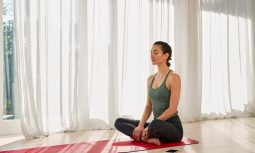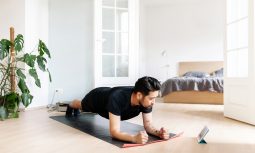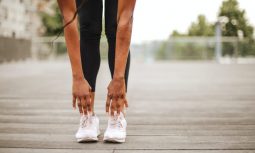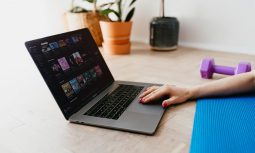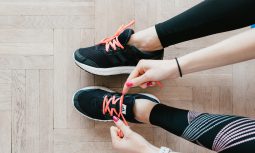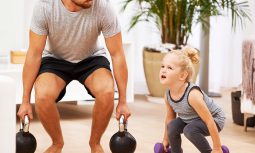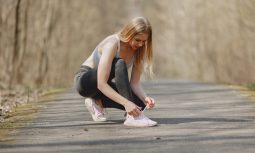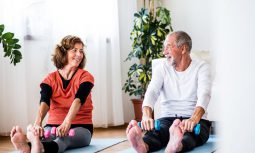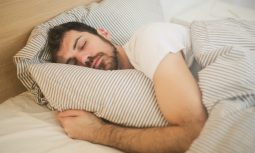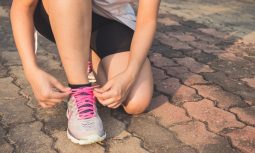With so much change in our communities and lives at the moment, anxiety is a natural response. Regular exercise will go a long way towards helping.
Talk to anyone these days and they will say a version of the same thing: these are the strangest times. For most of us the new rules – being confined to home, prevented from travelling, banned from congregating in public, and asked to “physically distance” ourselves even from loved ones – are utterly unique and unprecedented.
They can also be highly stressful, and the “psychology of uncertainty” is a well-known phenomenon. People will react differently to a situation such as this, and avoiding obsessive news and social media consumption may be one way to manage stress. Similarly, simple coping techniques for working from home and self-isolation can help.
But as everyone who exercises regularly already knows, some of the main benefits of working out are the impacts it has on your sense of mental wellbeing. Many fitness professionals will even tell you that their primary motivation is the effect exercise has on their mood, with the physical benefits a happy by-product of that.
Here are some of the ways exercise can help you:
Support Brain Health
In truth, our physical and mental health are intertwined – and staying active is one of the fundamental ways we maintain emotional and cognitive resilience. Put simply, when we exercise, our bodies release a protein called brain-derived neurotrophic factor (BDNF) that improves the health of our brain cells. As neuroscientist Maurice Curtis explains, “The general principle at play is that when you exercise you’re much more likely to cause the brain to make new brain cells.”
Moderation Works
You don’t have to work out like an elite athlete – in fact, moderation (shorter workouts, three or four times a week) seems to be a key to improved mental wellbeing. A recent study found that adding 20 minutes of moderate-intensity aerobic exercise to your morning routine can provide an immediate mood boost – with the effects lasting up to 12 hours. Low impact activity such as walking is also known to lower stress and anxiety levels.
Get Enough Sleep
Key to both physical and mental health is establishing good sleep patterns – exercise will help you sleep better, but sleep will also help you exercise more successfully, so it is a virtuous circle.
Outdoors or Indoors
With so many of us now confining ourselves to home and working remotely, the challenge is finding new ways to exercise if our old routines have been disrupted. But remember, nature has not been cancelled – if we observe the correct protocols, getting outdoors (for a run or walk if that is possible, or simply to work out) is a proven boost for physiological and psychological health. And with our workout library, working out from home has never been easier.
We know exercise is one of the best medicines, and supporting our mental wellbeing is one of the major ways it helps us through the tough times to a better place.
Log in or sign up to access all our workouts and LIVE classes to get you moving and feeling great!
*source: Les Mills: Written by Finlay Macdonald for Fit Planet: https://www.lesmills.com/fit-planet/health/covid-anxiety/




